Title IX at 50: WNBA represents a 'new model of sports activism,' and research backs it up
In 2012, Minnesota Lynx guard Seimone Augustus organized a campaign to speak out against Amendment 1, a proposal that would have constitutionally banned same-sex marriage in the state.
In 2020, Atlanta Dream players rallied in support of Raphael Warnock, the Georgia Democrat who ultimately beat Republican Kelly Loeffler, then a Dream co-owner, in a U.S. Senate runoff election.
And in 2021, the Los Angeles Sparks’ Nneka Ogwumike and the Las Vegas Aces’ A’ja Wilson were among the WNBA stars to appear in an “Our Health Is Worth A Shot” PSA to promote coronavirus vaccines.
For Dr. Angie Delevoye, a Stanford data scientist, those were three of many instances that confirmed the WNBA’s status as the poster child of a “new model of sports activism”: one, she wrote, that can put leagues in the “unique and unprecedented position” of actually benefiting from not sticking to sports.
Title IX anniversary: How the USWNT and WNBA have fought and won major gains in collective bargaining agreements
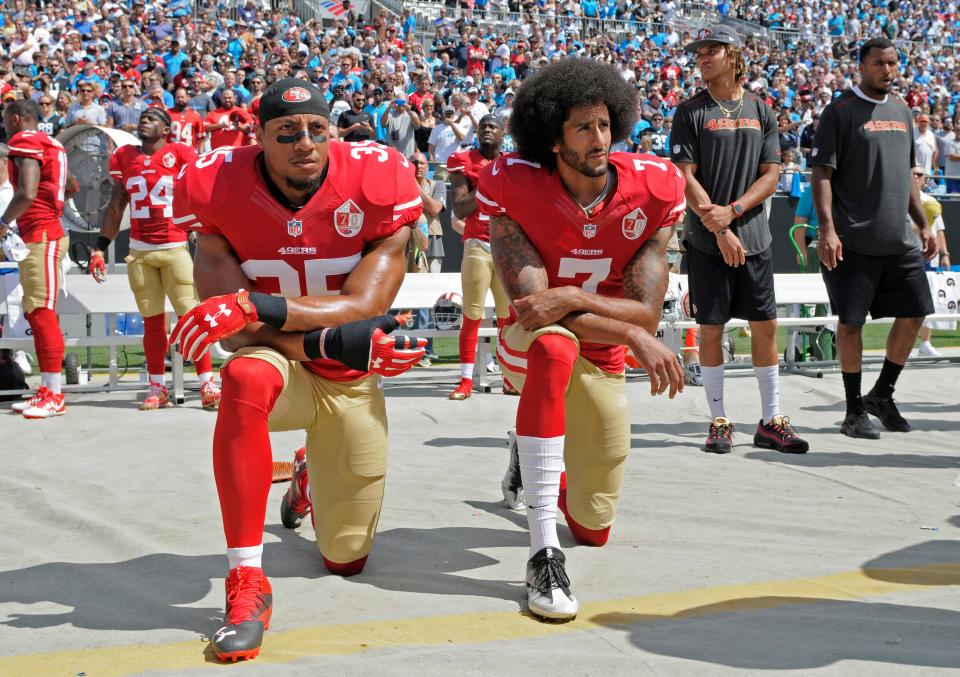
In contrast to, say, the ostracization that U.S. track athletes Tommie Smith and John Carlos faced after raising black-gloved fists during the national anthem at the 1968 Summer Olympics or San Francisco 49ers quarterback Colin Kaepernick faced after kneeling during the anthem ahead of 2016 NFL games, “activism does not come at a cost for the WNBA,” Delevoye wrote in a recently approved dissertation.
Delevoye’s May dissertation, “Leading From the Margins: the WNBA and the Emergence of a New Model of Sports Activism in the United States,” helped her earn a Ph.D. in political science from Yale.
It also provided some timely research and takeaways as the 50-year anniversary of Title IX, the federal civil rights law that barred sex-based discrimination in federally funded “education programs and activities” and essentially codified women’s college athletics as we know it, approaches on June 23.
Specifically: WNBA athletes have charted, and continue to chart, a new path when it comes to the intersection of sports and politics: something that, for their notably diverse league, is unavoidable.
The WNBA “took it as far as we’ve seen,” Delevoye said in a presentation to members of the Associated Press Sports Editors’ Atlantic Region last month.
Players' roles are inherently political
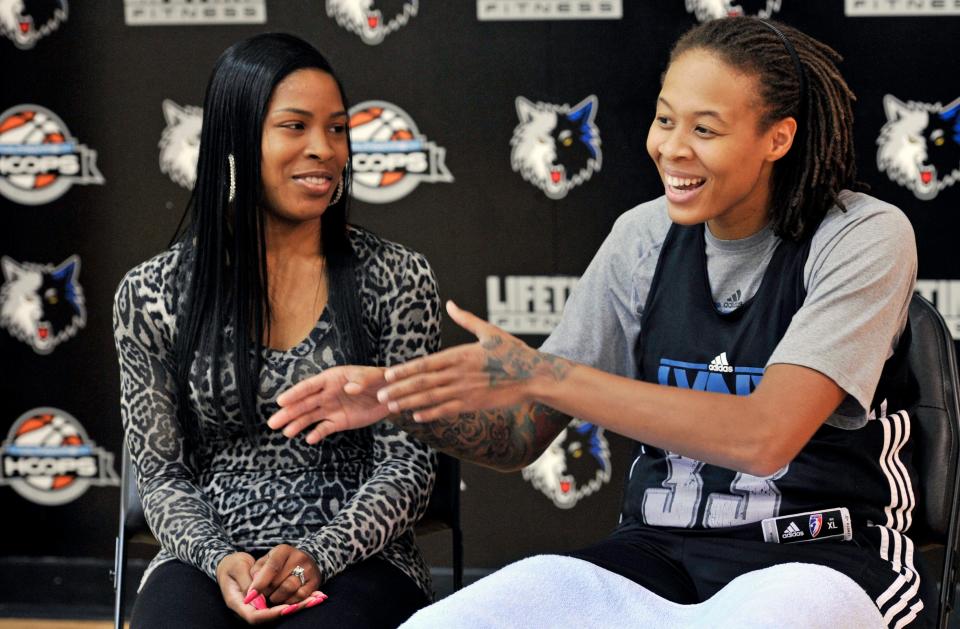
Across 168 pages of context and figures and research, Delevoye honed in on three key characteristics to argue for the WNBA’s status as a trailblazing sports league and a potential model to follow nationally.
No. 1: WNBA players “have never had the privilege of not being political,” she wrote. Per statistics compiled by Delevoye, around 67% of WNBA players are Black, and, though full stats don’t exist, a “substantial proportion” of WNBA players identify as LGBTQ+. All five 2019 All-WNBA first-teamers identified as LGBTQ+, while at least 25% of athletes in last year’s playoffs were openly LGBTQ+.
“Their mere existence as athletes has to be political,” Delevoye said. “(WNBA star) Sue Bird has a great quote along the lines of: ‘We would love to just play ball and shut up, but they’ve never allowed us to.’”
No. 2: activism has been a key part of the WNBA’s long-term success (its 26th season started in May), but that synergy “only came after the league fully started acknowledging its players’ identities.” Gone are the days of the WNBA branding itself as a league exclusively for traditional gender roles and femininity.
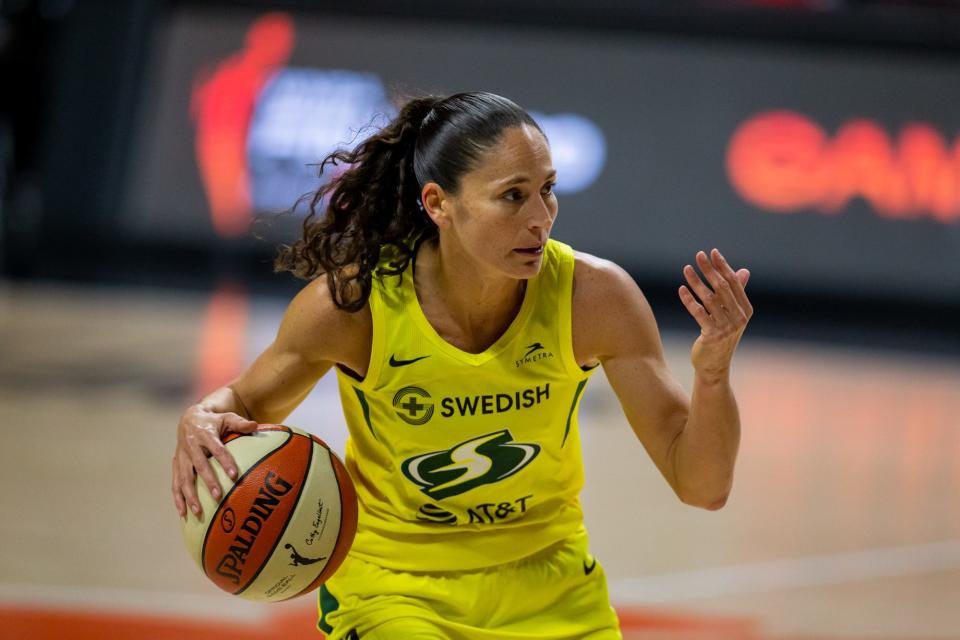
On the contrary, the WNBA’s more recent embrace of its athletes’ diversity and activism (with a big assist from the WNBA Players’ Association) had big business benefits. The 2021 season was the WNBA’s most watched since 2008; merchandise sales and social media impressions also saw record growth.
“Only when leagues fully embrace that political nature can they start seeing those business gains and political successes feeding each other,” Delevoye said.
No. 3: the WNBA’s success “both relies on and generates” an alignment between athletes’ values and fans’ values. Delevoye found that WNBA fan bases are, on average, more diverse than NFL, NBA and MLB fan bases when it comes to sexual orientation, race, party identification and other demographics.
Based on surveys of 6,278 fans, she found that, for example, 84% of WNBA fans identify as straight while over 90% of NFL, NBA and MLB fans do. The WNBA also has the smallest share of Republican fans (17%), smallest share of male fans (55%) and second smallest share of white fans (59% to the NBA’s 50%).

As for the impact of this new model of sports activism? Delevoye’s research revealed that WNBA athletes’ speaking out can effectively impact opinions on policies such as equal pay, voting rights and the inclusion of transgender athletes in sports, three topics she specifically chose for her studies.
But survey responses, she said, were “polarized." While liberal sports fans (whose views are far more in line with WNBA players) were more persuaded by WNBA-backed messaging around political topics, conservative sports fans (whose views are less in line) were less persuaded. It’s called group cue: reacting to messenger over topic.
“There was this idea that when Republicans and Democrats talk about issues, of course you’ll see polarization,” Delevoye said. “But I show here that it also works with non-political messengers.”
History of activism in the WNBA
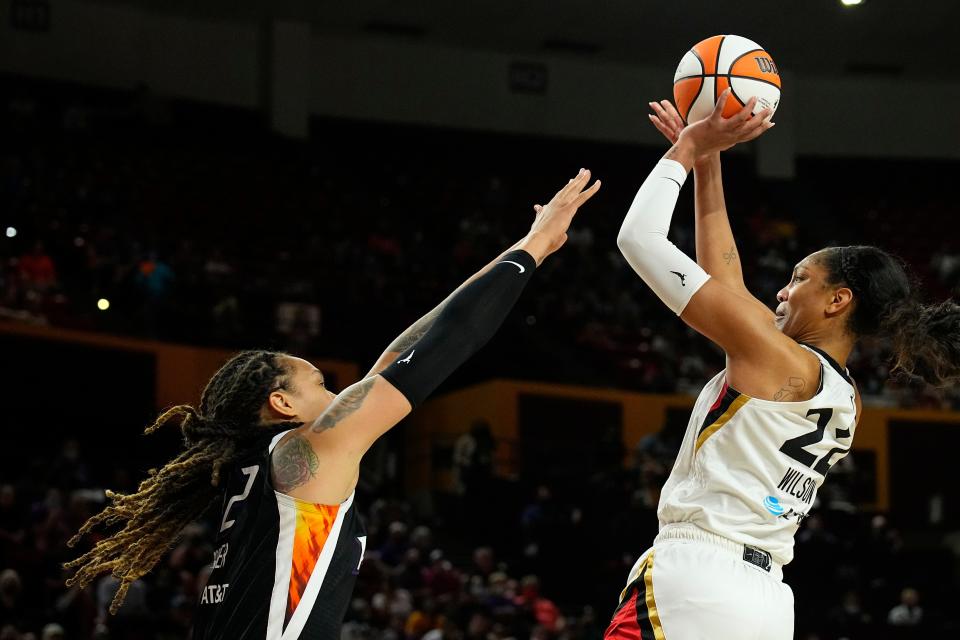
Establishing the WNBA as a “credible, relevant non-political messenger,” or an organization that’s not explicitly affiliated with politics but still makes political arguments, was a key part of Delevoye’s social science research and dissertation as a whole. Based on the last decade of WNBA activism, she had lots to cover.
Outside of their aforementioned activism surrounding anti-gay marriage laws and coronavirus vaccines, WNBA athletes have been at the “forefront” of activism, Delevoye wrote, surrounding police brutality, social injustice and system racism, specifically in the context of police killings of Black men and women.
In 2016, the Lynx were the first pro sports franchise to protest the police killings of Alton Sterling and Philando Castile. In 2019, former MVP Maya Moore left basketball to pursue criminal justice reform. In 2020, WNBAers Natasha Cloud, Renee Montgomery and Tiffany Hayes opted out of the season to focus on advocacy and organizing efforts amid a nationwide reckoning on race, privilege and police violence.
The list goes on, and it includes Dream players’ hand in Warnock’s successful U.S. Senate campaign against Loeffler, the former Georgia Republican senator and Dream co-owner who criticized the Black Lives Matter movement in July 2020. Warnock’s campaign “took off” later that summer, Delevoye said.
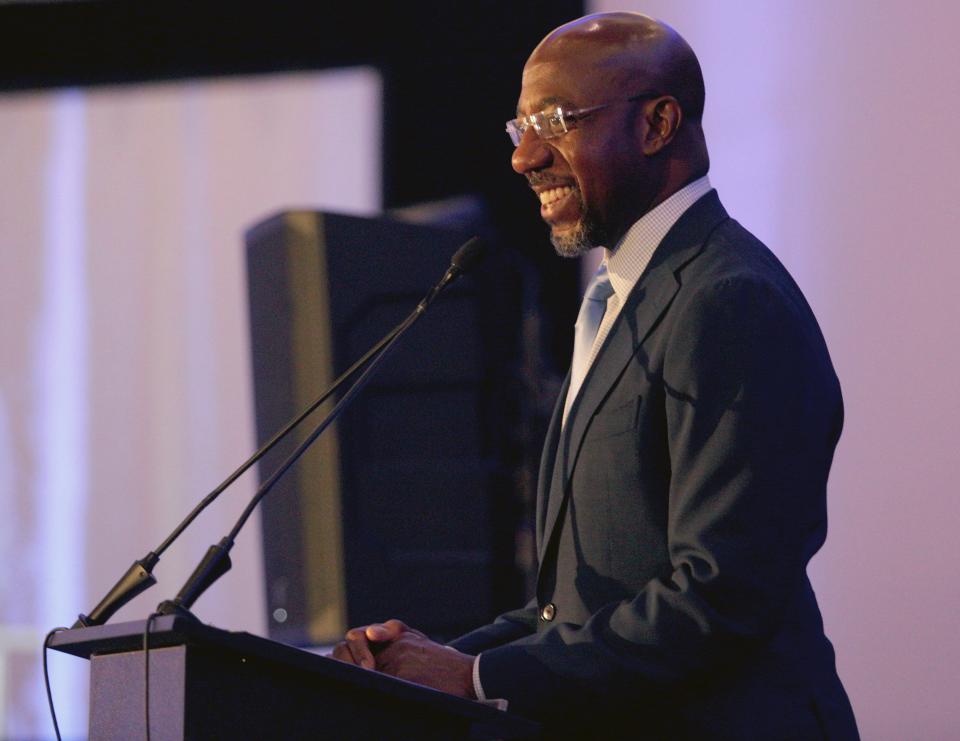
“It can’t be totally credited to the WNBA,” Delevoye said. “He had a strong health-based and social justice-based campaign, which obviously resonated … but there’s only so much the press can talk about, and the WNBA provided a key extra angle to talk about the race in ways that were favorable to him.”
Delevoye’s research revealed lingering questions, she said. Most notably, how can the WNBA sustain this increased level of interest and translate it into more “concrete actions,” such as ticket and merchandise sales? And how applicable is this WNBA model to other sports and other countries?
But “the main takeaway,” Delevoye said, “is that for the WNBA, at least, it’s true that business success and political success don’t come at each other’s expense. Both can happen at the same time."
Chapel Fowler is a recruiting reporter for The Fayetteville Observer and the USA TODAY Network. Reach him by email at cfowler@gannett.com or on Twitter at @chapelfowler.
This article originally appeared on The Fayetteville Observer: Title IX anniversary: WNBA players' political activism benefits league

